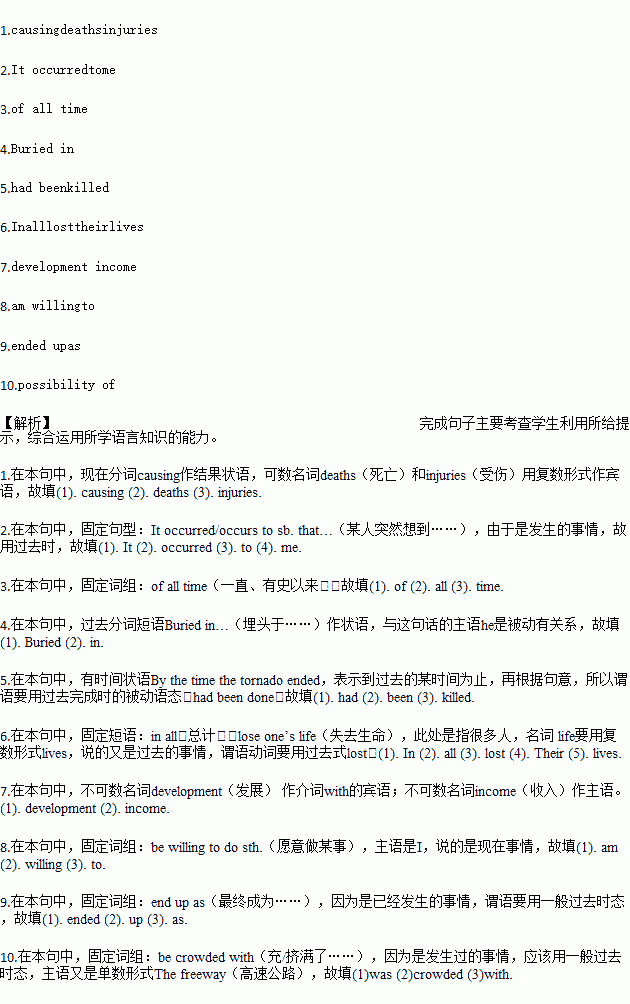题目内容
1.每年,美国有800次龙卷风,造成80人死亡,1500人受伤。
There are 800 tornadoes in the USA each year,_________about 80_______and 1500_________.
2.我突然想到要出国留学。
___________ __________ ___________ __________that I will study aboard.
3.人们一致认为毛主席是有史以来最伟大的人。
It is generally agreed that chairman Mao is the greatest man_______ _______ ________.
4.埋头看书,他没有注意到妈妈进来了。
______ ________ his book, He didn’t notice his mother came in..
5.到龙卷风结束为止,700多人遇难。
By the time the tornado ended , more than 700 people ______ ______ ________ .
6.总计,有83万人失去生命。
_________ ___________, 830,000 people ___________ _________ __________.
7.随着社会的发展,人们的收入越来越高了。
With the ________of society , the ____ of people is becoming higher and higher.
8.尽管我自己也需要钱,但我愿意帮助你。
Though I need money for myself ,I ____________ _________ ____________help you.
9.他最终成为这家公司的老板。
He_________ ________ __________ the head of the company.
10.高速公路上挤满了车。
The freeway ________ __________cars.


 . The result is a rise in obesity rates among adolescents. Unfortunately, fixing the problem isn’t as easy as simply cutting down screen time, Janssen cautions. “Decreasing screen time will not automatically increase physical activity levels,” said Janssen, Some active kids also spend a lot of time in front of television and computer screens, and some kids who have low screen times also have low levels of physical activity, he points out.
. The result is a rise in obesity rates among adolescents. Unfortunately, fixing the problem isn’t as easy as simply cutting down screen time, Janssen cautions. “Decreasing screen time will not automatically increase physical activity levels,” said Janssen, Some active kids also spend a lot of time in front of television and computer screens, and some kids who have low screen times also have low levels of physical activity, he points out. yourself.”
yourself.” ep telling the kids how to behave themselves at dinner.
ep telling the kids how to behave themselves at dinner.